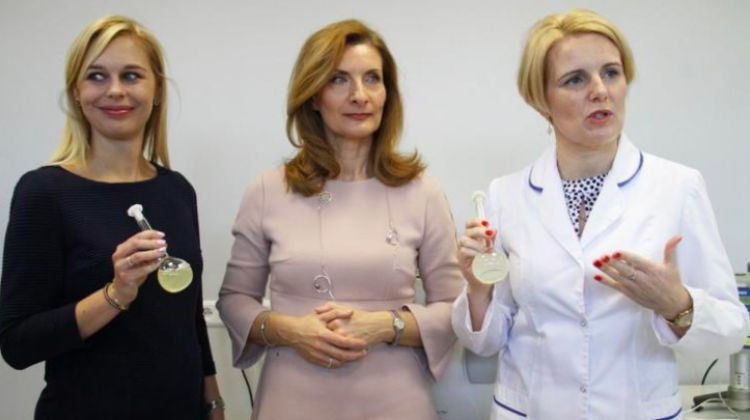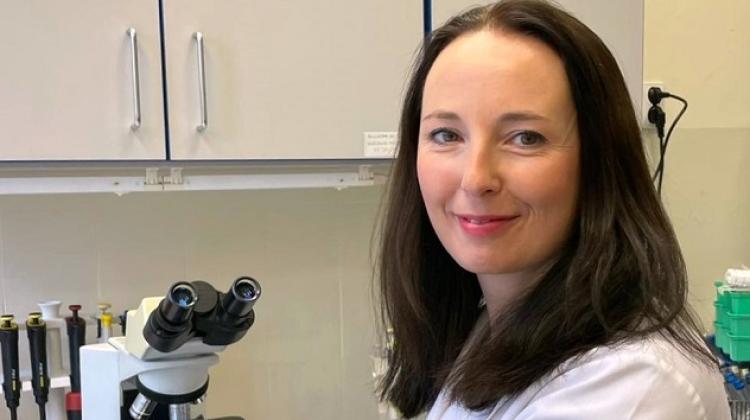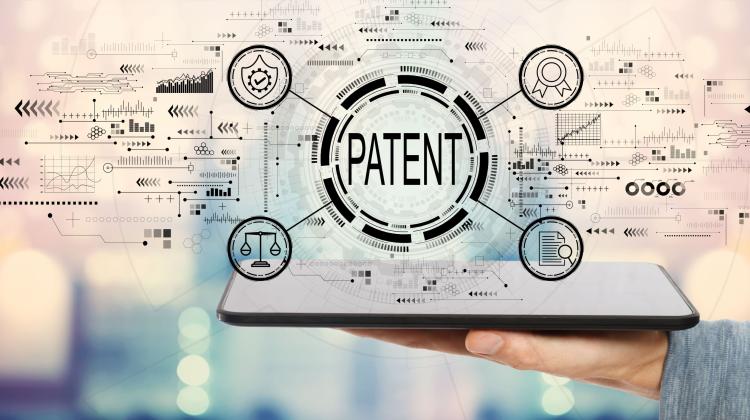Białystok/ Natural saliva substitute patented
 Dr. Katarzyna Niemirowicz-Laskowska, Prof. Halina Car and Dr. Joanna Mystkowska. Source: Politechnika Białostocka
Dr. Katarzyna Niemirowicz-Laskowska, Prof. Halina Car and Dr. Joanna Mystkowska. Source: Politechnika Białostocka
Artificial saliva designed to help patients with prostheses or problems with the secretion of natural saliva has been patented scientists from Bialystok University of Technology, the Medical University of Bialystok and the company Nantes.
The patent was announced at a press conference at Bialystok University of Technology.
It is at this university - recalled the Vice-Rector for Science at Białystok University of Technology, Prof. Andrzej Sikorski - that the work on artificial saliva began10 years ago, and for about four years it has been conducted jointly with the Medical University of Bialystok.
This is the third Bialystok University of Technology patent associated with artificial saliva, and the second shared with the Medical University of Bialystok.
"Our artificial saliva consists of a mucin base and the additive that changes (...) lubricity is xanthan gum. Another additive, nanoparticles of gold, give the product its biofunctional properties, mainly in biological terms" - explains the project coordinator, Dr. Joanna Mystkowska from the Faculty of Mechanical Engineering, Bialystok University of Technology.
According to Mystkowska, the preparation does not cause the wear of mechanical orthodontic or prosthetic products, thus extending their lifetime. This wear - Dr. Mystkowska explains - was the inspiration for work on artificial saliva when the rate and process of wear of dental prosthetics was researched.
Mystkowska explains that mouth dryness can affect up to 40 percent of the population, mainly elderly people who take antidepressants or hypertension drugs. She adds that the modern life in tension and stress, combined with inadequate hygiene, can lead to salivary secretion disorders. "Those affected by salivary secretion disorders are unable to speak, eat, swallow, they have reduced digestive, cleansing, and remineralisation capabilities" - Mystkowska says.
Prof. Halina Car from the Medical University of Bialystok adds that the problem also affects people with cancer, for example salivary gland cancer, but also patients whose salivary glands have been damaged as a result of cancer therapies. "The number of people who need artificial saliva is growing at a rate that surprises us too" - says Prof. Car.
"Our primary goal was to imitate natural saliva" - emphasises Prof. Car and notes that natural saliva has moisturizing, but also digestive functions, and defends the body against harmful microorganisms.
According to Dr. Katarzyna Niemirowicz-Laskowska from the Medical University of Bialystok, studies confirm that the preparation improves lubricity (associated with friction), but also has antimicrobial properties, takes care of hygiene for the patient, preventing the development of plaque.
"The trick is that each preparation has its own specific properties and obtaining a few beneficial properties in one preparation is definitely a challenge. This does not mean that we have made the best preparation, absolutely not. We know that it can be improved. But we managed to create a preparation that combines at least four or five properties of natural saliva. This is a unique achievement" - says Prof. Car.
Work on artificial saliva will be continued in Bialystok. Universities and the company they work with want to commercialise the patent. (PAP)
author: Izabela Próchnicka
kow/ ekr/ kap/
tr. RL
Przed dodaniem komentarza prosimy o zapoznanie z Regulaminem forum serwisu Nauka w Polsce.















